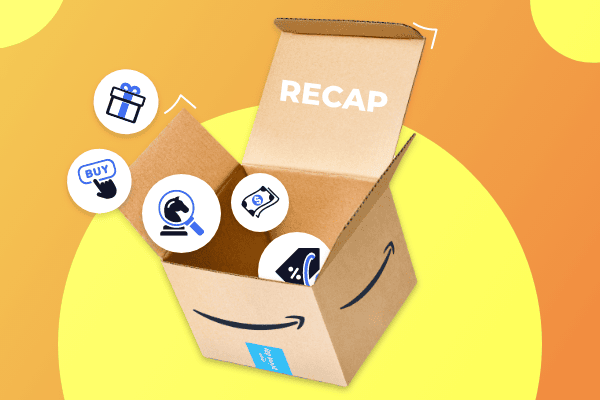Summary
At ShopAble in the Park 2025, industry leaders debated one of retail media’s biggest questions: should it sit with media teams or retail teams? The spirited discussion revealed strong cases on both sides—media advocates pushed for centralized ownership and agility, while retail experts emphasized commercial accountability. The takeaway? Collaboration, cross-functional skills, and AI-driven data integration will be essential as retail media matures.
ShopAble in the Park 2025 brought the energy of Skai’s flagship US event to London. This reimagined, festival-style gathering of commerce media leaders took place at Shoreditch Gardens, delivering fresh ideas, industry-shaping conversations, and plenty of inspiration. With topics spanning AI, omnichannel strategy, and the future of retail media, ShopAble in the Park marked a pivotal moment for the UK commerce media community.

The most contentious question since the start of retail media took center stage: should it live within media teams or retail teams? ShopAble in the Park’s spirited debate format pitted industry experts against each other to settle the organizational challenge that’s reshaping marketing departments everywhere.
While Team Retail argued for keeping retail media with sales teams who own retailer relationships and commercial outcomes, Team Media made the case for centralized ownership to drive strategic vision and agile decision-making. In the end, Team Media won the audience vote, but both sides agreed that the real future lies in breaking down silos and fostering collaboration between teams.
Nich Weinheimer, Chief Strategy Officer at Skai, hosted this lively debate featuring passionate arguments about budget ownership, team accountability, and the evolution of commerce strategy in an increasingly complex landscape.
Team Media
- Sarah Masters, Brand Leader (recently Marketing Digital & Ecommerce Director, Unilever)
- Andrew Spurrier-Dawes, Chief Growth Officer, WPP
Team Retail
Should retail media advertising shift from sales teams to media teams?
Masters: “So essentially the question is, should the media team own the media? So I could mic drop, but we’ll build. We make things difficult. All we ever strive for in reorganizations is simplification. There are so many silos, so many teams, it’s quite paralyzing to do anything. We don’t need more barriers, we don’t need more silos to stop us progressing.”
“When acknowledged that media is sales and sales is media, and if you need more of one, you probably need more of the other. Eight in ten shoppers, when they buy, are influenced by digital touchpoints. This is the year of change, not the year of stagnation.”
Peschechera: “If we think about the media team, how can they know for each specific retailer if these three legs are there, we’re only talking about the retail media part, which is just one leg. But if we don’t know how to, then every day make sure that the portfolio is there, that there are no 3P sellers diluting the buy box and the ownership of the offer we have, how are we supposed to actually drive performance on this retailer?”
Toothill: “I think what’s happened there is Team Media has simplified the idea of retail in a media lens. In reality, retail is way more complex than that. If you think about sales, what they do is actually hold the commercial relationship. The commercial levers that they have, whether that’s distribution, pricing, visibility, all of these things have a significant effect on the outcome of not only the media but also the commercial success of the business itself.”
Where should future budget allocations come from?
Masters: “Allocations of funding need to be based on long-term business objectives, not short-term ROAS or short-term targets. The funds need to be flexible, they need to follow the data, and they need to follow performance. What we don’t want is a Teams call booked in for the following Friday to ask for permission to respond to an opportunity.”
Surrier-Dawes: “The allocation needs to come from a true understanding of performance because you can’t say, oh, we’ve performed because we’ve sold a bucket load and it’s all because of our retail media. Actually, why were people on the site in the first place? It’s because there was a big TV campaign and you don’t understand that.”
Toothill: “It’s tempting to buy into this utopian idea of centralized budgets, agnostic budgets, but CPGs don’t run that way. They’re very complex organizations, and Sales still controls the purse strings because they own the relationship with the retailer and they own the risk and the results that come out of it.”
Peschechera: “We have the CFO and the CPG. We have to consider that we are measured on the euro, various sales, and units we generate. We are talking about retailers; we don’t necessarily look only at the incremental reach we can get to a certain retailer. I want to understand, does it make sense to invest in this business relationship?”
What does this retail teams vs. media teams dynamic look like in five years?
Peschechera: “There’s this shortening time between awareness and conversion. So, what we envision is a retail team managing the media budget, but obviously, it’s very closely connected. We want to collaborate with the media team, especially when it comes to what are the creatives we want to show? What are the claims we want to have for the brand? The media team is supporting the retail team, but it’s the retail media team managing these budgets.”
Toothill: “Even in five years, unless [the] media [team] is ready to have people who can go into retailer and carry budget, carry success, [take responsibility] if a campaign doesn’t go well from a media perspective and it doesn’t perform, then [the retail team] will have to go in and tell Tesco’s or Sainsbury’s or whoever why it didn’t work. And they have to own the commercial impact of that.”
Surrier-Dawes: “What we need are why people ultimately. What we see in five years’ time is a happy CFO because he’s got a team where he can go and give business problems to. You give a business problem to a retail team, they’ll say retail’s the answer. You give it to a media and advertising team, they’ll go, we’ll work out what the problem is, and we’ll divvy up the budgets accordingly.”
Masters: “I think in five years HR will be recruiting differently. The media hires now that we’re making have to be more analytical. They have to be comfortable with numbers, and they have to be comfortable with moving across the channels. Media people know numbers, media people know technology, media people are commercial.”
What are the core philosophical differences?
Masters: “I think this kind of reticence to change is nervousness. It’s fear about letting go of the knowledge, but we don’t need the knowledge anymore. AI has all that knowledge, and we make decisions, move on, and take down those silos. That reticence to change.”
“Money and funding follows performance, and a retailer, an agency, a person, a team will get rewarded with more funding when they show the data and they show the performance.”
Toothill: “I think if you give a commercial problem to a media person and they’ll solve it with media as opposed to solving it with commercial strategy.”
Surrier-Dawes: “Access is democratized now, right? Because everyone, all the growth is coming from off-site media. All the growth is coming from data and integrations into social platforms. You don’t need a relationship to do that.”
Peschechera: “The teams have to talk, led by the retail team obviously, but they have to talk because each retailer is innovating. What are the innovative solutions they are presenting to do retail media? The retail team can present to the media team, what are the opportunities the brand can leverage and unlock additional budgets.”
Key Takeaways for Marketers
Team Media won the debate based on the audience vote, but collaboration won the argument. While the audience voted for Team Media’s vision of centralized ownership and agile decision-making, both sides emphasized that breaking down silos and fostering collaboration is essential regardless of organizational structure.
The skills gap is real and evolving rapidly. Both teams agreed that hiring practices must change. Media professionals need to become more analytical and comfortable with commerce metrics, while retail teams need to understand the broader media ecosystem beyond direct retailer relationships.
Budget control reflects risk ownership. Team Retail’s strongest argument centered on accountability, sales teams own retailer relationships and commercial outcomes, so they should control the budgets. Team Media countered that centralized ownership enables faster, data-driven decisions.
The complexity challenge cuts both ways. Team Retail argued retail relationships are too complex for media teams to manage effectively. Team Media argued this complexity creates paralyzing silos that prevent agile response to opportunities.
Long-term strategy requires different thinking. Team Media emphasized moving beyond short-term ROAS to strategic vision and cross-channel understanding. Team Retail focused on maintaining strong retailer relationships that drive sustained commercial success.
Technology is changing the game. Both sides acknowledged that AI and data platforms are democratizing access to insights previously held by specialist teams, potentially reshaping how organizations should be structured.
Conclusion: Retail media = retail + media
The debate at ShopAble in the Park 2025 made one thing clear: the future of retail media won’t be defined by one team owning it outright, but by dismantling silos and building truly collaborative models. As AI and data democratize access to insights and blur the lines between media and commerce, success will hinge on hybrid skill sets, shared accountability, and flexible structures that prioritize performance over hierarchy.
Forward-thinking brands will invest in cross-functional training, unified data systems, and closer alignment between retail and media functions. The question isn’t “which team should own retail media?” anymore—it’s “how fast can we adapt our organizations to unlock its full potential?”
Learn more from the ShopAble in the Park 2025 expert sessions:
Frequently Asked Questions
Media teams offer centralized strategy and agility, while retail teams hold commercial relationships. Most experts agree that collaboration between both is key.
44% now integrate retail media into digital media teams, up from 34% last year, signaling a shift toward centralized ownership with shared input.
Teams need analytical skills, data fluency, and cross-channel expertise. Media must understand commerce metrics, and retail must learn broader media strategy.







